Duties of the Lieutenancy
Celebrating Cumbria
The Cumbria Lieutenancy wants to celebrate Cumbria, its unique history and culture, serve its communities, and contribute positively to the county’s future.
The Lieutenancy aims to do this by:
- providing a focus for County identity, unity and pride
- giving a sense of stability
- recognising achievements, success and excellence
- promoting service to others
Role of the Lord-Lieutenant
The Lord-Lieutenant is His Majesty’s personal representative in Cumbria, appointed by The King on the recommendation of the Prime Minister. The role is held until retirement, typically at age 75.
The primary purpose of a Lord-Lieutenant and his or her deputy is:
- To be His Majesty’s representative in their county and consequently it is their first and foremost duty to uphold the dignity of the Crown.
- To follow the example of The King and other members of the Royal Family as they seek to promote a good atmosphere and a spirit of co- operation, by the encouragement they give to voluntary service, and to benevolent organisations, and by the interest they take in the business, industrial and social life of their counties
The role encompasses six key areas of activity:
- Royal Visits – receiving members of the Royal Family, receiving Heads of States’ visits, and helping to organise these visits.
- Honours and Awards – promoting national honours and awards, organising the presentations of the British Empire Medals to local recipients, validating local nominations, supporting The King’s Awards for Enterprise and Voluntary Service.
- Military liaison – supporting the local military (regulars, reserves and cadets) in collaboration with representatives of Cumbria’s military and volunteer organisations.
- The Judiciary and the Magistracy – supporting the judiciary and the magistracy, in particular having oversight of, and recruiting to, the magistracy.
- Civic and charity support – working closely with elected representatives to deliver beneficial outcomes and supporting the charity sector.
- Community engagement – encouraging and supporting positive community cohesion and engagement.
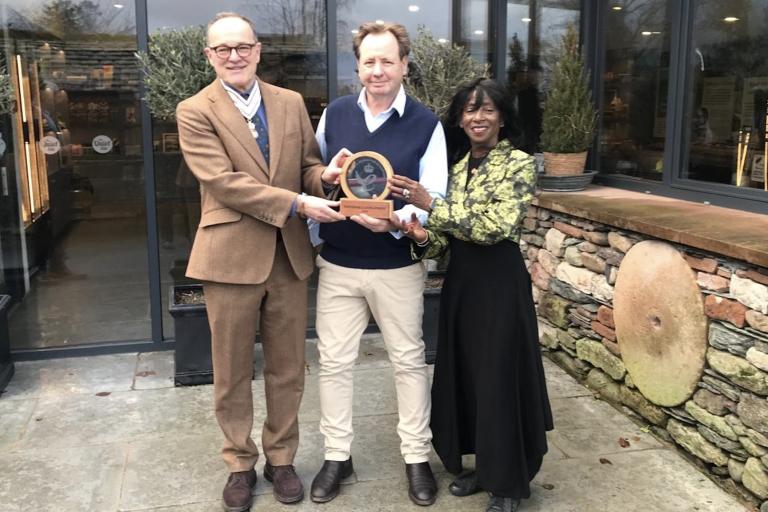
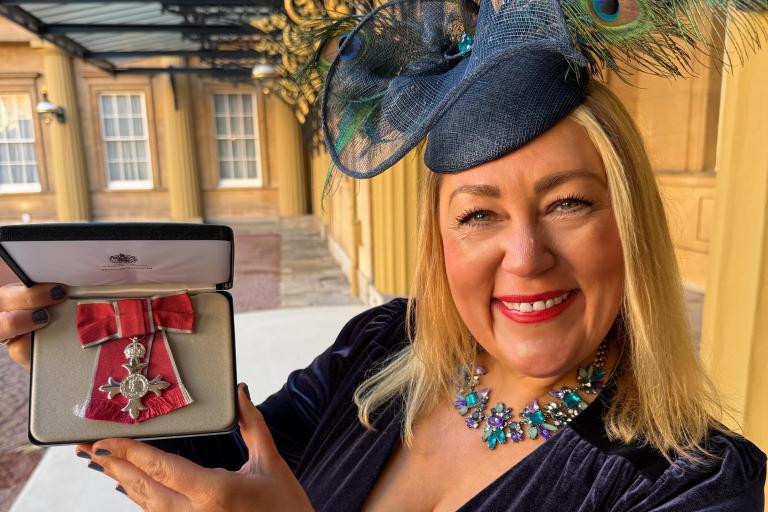
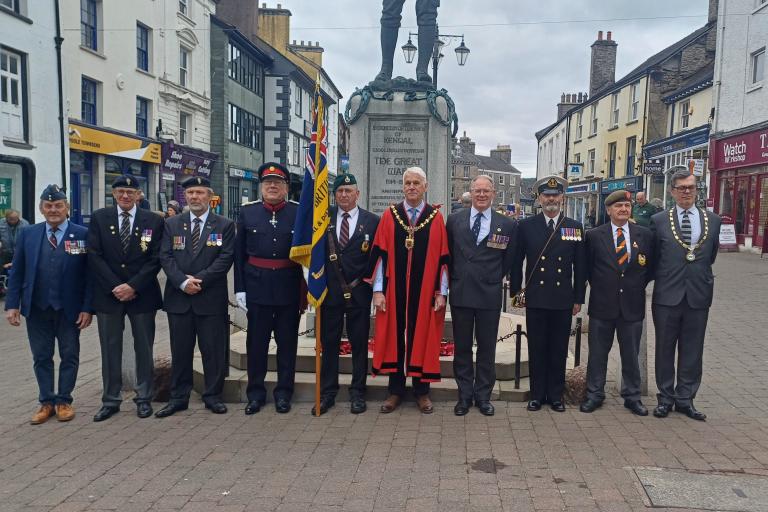
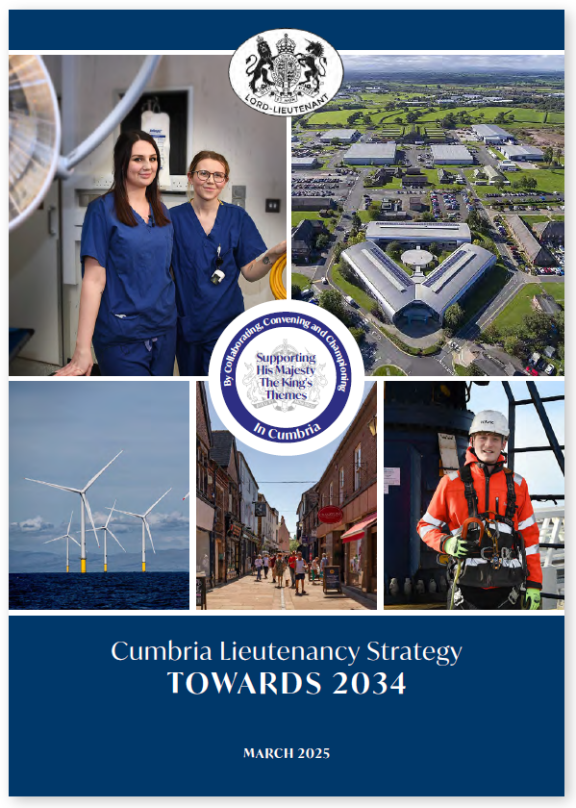
Cumbria Lieutenancy Strategy: towards 2034
Since his appointment by His Majesty The King, the Lord-Lieutenant and the Lieutenancy Team have been thinking carefully about how they can best carry out their role in a way which accords with The King’s wishes and is sensitive to, and best serves, Cumbria’s unique characteristics.
A new Cumbria Lieutenancy Strategy was launched in September 2025, support The King’s four key themes: Community, Culture, Climate and Commonwealth. The Lieutenancy will aim to do this through collaborating, convening and championing people, activities, and achievements which take those themes forward.
Find out more on our Cumbria Lieutenancy Strategy page.
History of the Lord-Lieutenants
His Majesty's Lord-Lieutenants are the representatives of the Crown for each county in the United Kingdom. They are appointed by The King on the advice of the Prime Minister after extensive consultations within the county. Their foremost duty is to uphold the dignity of the Crown.
Prior to the formation of Cumbria in 1974, there were Lord-Lieutenants of Cumberland and of Westmorland. There have been five Lord-Lieutenants of Cumbria since 1974:
- John Charles Wade: 1974-1983
- Sir Charles Graham: 1983–1994
- Sir James Cropper: 1994–2012
- Claire Hensman: December 2012 – July 2023
- Alexander Scott: July 2023 – present
The office of Lord-Lieutenant is military in origin and dates from the reign of Henry VIII when its holder was made responsible for the maintenance of order, and for all military measures necessary locally for defence.
It was not until 1921 that the Lord-Lieutenant finally lost the power to call on all able-bodied men of the county to fight in case of need.
Lord-Lieutenants may wear a military-style navy blue uniform with scarlet stripes on the trousers and a scarlet band round the peaked cap. Alternatively, Lord-Lieutenants may wear a badge of office without a uniform.
The traditional links with the armed forces continue. The Lord-Lieutenant of Cumbria is involved with the North West Reserve Forces and Cadet Association and veterans' organisations such as, The Royal British Legion, Soldiers', Sailors', and Airmen's Families Association (SSAFA), and The Army Benevolent fund.
There are links with other uniformed organisations, such as the police, fire and ambulance services and many voluntary bodies such as St John Ambulance, Scouting and Girlguiding.
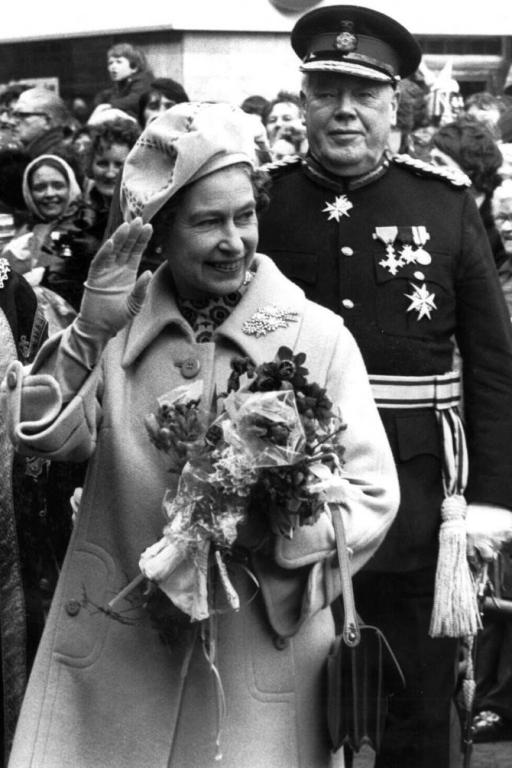
Queen Elizabeth II during her Silver Jubilee visit to Carlisle in 1977, accompanied by the first Lord Lieutenant of Cumbria, John Charles Wade.
Photograph The Cumberland News, courtesy of Newsquest Cumbria
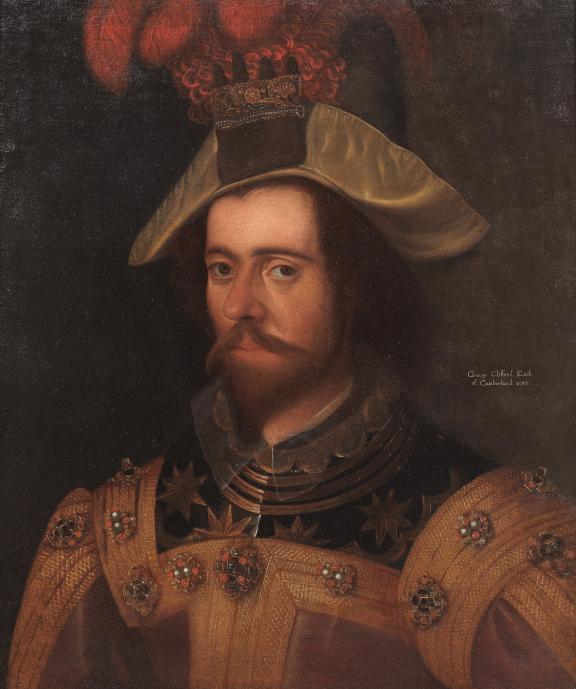
George Clifford, 3rd Earl of Cumberland (1558-1605) was one of the first Lord Lieutenants of Cumberland, from 1603-1605
500 years of history
1543 First mention of Lord-Lieutenant.
1549 Lieutenants recognised by Parliament.
1569 Deputy Lieutenants established.
1585 Became permanent and regularised with a Lord Lieutenant for each Shire.
1639-1663 Various changes reflecting power changes between monarchy and Parliament.
1715-1815 Militias provided recruits for army and navy under the direction of Lieutenants.
1835 onwards, powers of Lord-Lieutenants generally diminish.
1908 Association of Lieutenants of Counties formed.
1918 Deputy Lieutenants Act removed property qualification but tightened residency requirements.
1921 The Lord-Lieutenant loses the power to call on all able-bodied men of the county to fight in case of need.
1960 First lady Lord-Lieutenant appointed.
1966 Deputy Lieutenants no longer required to have a military background.
1974 Lieutenants officially became Lord-Lieutenants (Local Government Act).
1997 Lieutenancies Act consolidated previous legislation.
A full account of the history of the Lieutenancies is given in Miles Jebb’s The Lord-Lieutenants and their Deputies (History Press, 2007), which also relates the history of individual Lieutenancies.
Wikipedia has pages listing Lord Lieutenants of Cumberland from 1586 to the creation of Cumbria in 1974, and Lord Lieutenants of Westmorland from 1553 to 1974.

